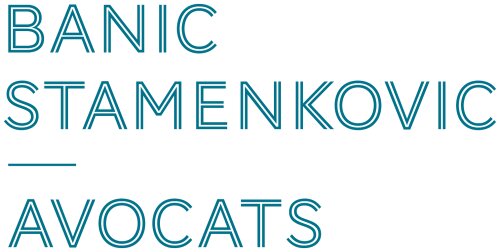Best Retirement Lawyers in Switzerland
Share your needs with us, get contacted by law firms.
Free. Takes 2 min.
Or refine your search by selecting a city:
List of the best lawyers in Switzerland
About Retirement Law in Switzerland
Retirement in Switzerland is structured around a three-pillar system designed to ensure a stable and sufficient income for retirees. The first pillar is the Old Age and Survivors Insurance (AHV/AVS), which provides a basic pension covering essential needs. The second pillar consists of occupational pensions (BVG/LPP), which aim to maintain the individual's previous lifestyle after retirement. The third pillar is the private, voluntary savings scheme, offering additional financial security and tax benefits. Together, these pillars work to provide comprehensive financial support to citizens post-retirement.
Why You May Need a Lawyer
Navigating the complexities of retirement law in Switzerland can be challenging, and there are several instances where legal assistance might be necessary. Common situations include disputes over pension entitlements or contributions, misunderstandings regarding cross-border work and pension rights, issues with early retirement or delayed retirement, and problems related to pension payments after the death of the recipient. A lawyer specialized in retirement law can help clarify these matters, ensuring individuals receive their entitled benefits and comply with legal obligations.
Local Laws Overview
Several key aspects of Swiss retirement laws are particularly relevant for those approaching retirement. These include mandatory life insurance as part of the second pillar, the adjustment of pension contributions based on income, and the option for early or deferred retirement. Additionally, Swiss law allows for flexibility in choosing beneficiaries for the third pillar in case of death. Cross-border workers need to be aware of agreements between Switzerland and their home country, which might affect social security benefits. Understanding these regulations ensures better financial and legal planning for retirement.
Frequently Asked Questions
How do I qualify for an AHV/AVS pension?
You qualify for an AHV/AVS pension if you have contributed to the system for at least a full year. The standard retirement age is 65 for men and 64 for women, but adjustments are being made gradually to equalize retirement ages.
Can I take early retirement?
Yes, you can choose early retirement up to two years before the official retirement age. However, early retirement leads to a permanent reduction in pension benefits.
Is it possible to continue working after the official retirement age?
Yes, you can work beyond the official retirement age. In this case, you can defer drawing benefits to increase your pension amount.
What happens to my pension rights if I move abroad?
Switzerland has agreements with many countries that allow you to receive your Swiss pension benefits even if you live abroad. It is essential to understand specific agreements your new home country might have with Switzerland.
How are the pension benefits calculated?
Pension benefits under AHV/AVS are calculated based on the number of contribution years and the average annual income. Missing contribution years result in reduced benefits.
What are the benefits of the third pillar?
The third pillar offers tax advantages and greater flexibility in savings and withdrawals. It allows for more personalized financial planning and security post-retirement.
Is pension income taxable?
Pension income is generally taxable in Switzerland. However, certain allowances and deductions may apply, depending on your canton of residence.
Can my spouse receive benefits after my death?
Yes, there are survivor benefits available. These can vary depending on the specific pillar and the terms of any private pension agreements in place.
How do cross-border pension agreements work?
Cross-border pension agreements between Switzerland and other countries are designed to protect the social security rights of individuals who have lived or worked abroad, allowing for portability of pensions.
How can I optimize my retirement plan?
Consulting with a financial advisor can help optimize your retirement plan by leveraging legal benefits, tax deductions, and investment strategies across the three pillars.
Additional Resources
For further information, you may contact or consult the Swiss Federal Social Insurance Office (FSIO), occupational pension funds, insurance companies, or a certified financial advisor for personalized advice. You can also explore the website of AHV/AVS for comprehensive details.
Next Steps
If you require legal assistance in retirement planning or have disputes regarding pension entitlements, consider contacting a lawyer specialized in Swiss retirement law. Look for someone with experience in pension law or affiliation with professional legal bodies. It is advisable to prepare relevant documents and a list of questions to maximize the efficiency of your consultation.
Lawzana helps you find the best lawyers and law firms in Switzerland through a curated and pre-screened list of qualified legal professionals. Our platform offers rankings and detailed profiles of attorneys and law firms, allowing you to compare based on practice areas, including Retirement, experience, and client feedback.
Each profile includes a description of the firm's areas of practice, client reviews, team members and partners, year of establishment, spoken languages, office locations, contact information, social media presence, and any published articles or resources. Most firms on our platform speak English and are experienced in both local and international legal matters.
Get a quote from top-rated law firms in Switzerland — quickly, securely, and without unnecessary hassle.
Disclaimer:
The information provided on this page is for general informational purposes only and does not constitute legal advice. While we strive to ensure the accuracy and relevance of the content, legal information may change over time, and interpretations of the law can vary. You should always consult with a qualified legal professional for advice specific to your situation.
We disclaim all liability for actions taken or not taken based on the content of this page. If you believe any information is incorrect or outdated, please contact us, and we will review and update it where appropriate.
Browse retirement law firms by city in Switzerland
Refine your search by selecting a city.

















